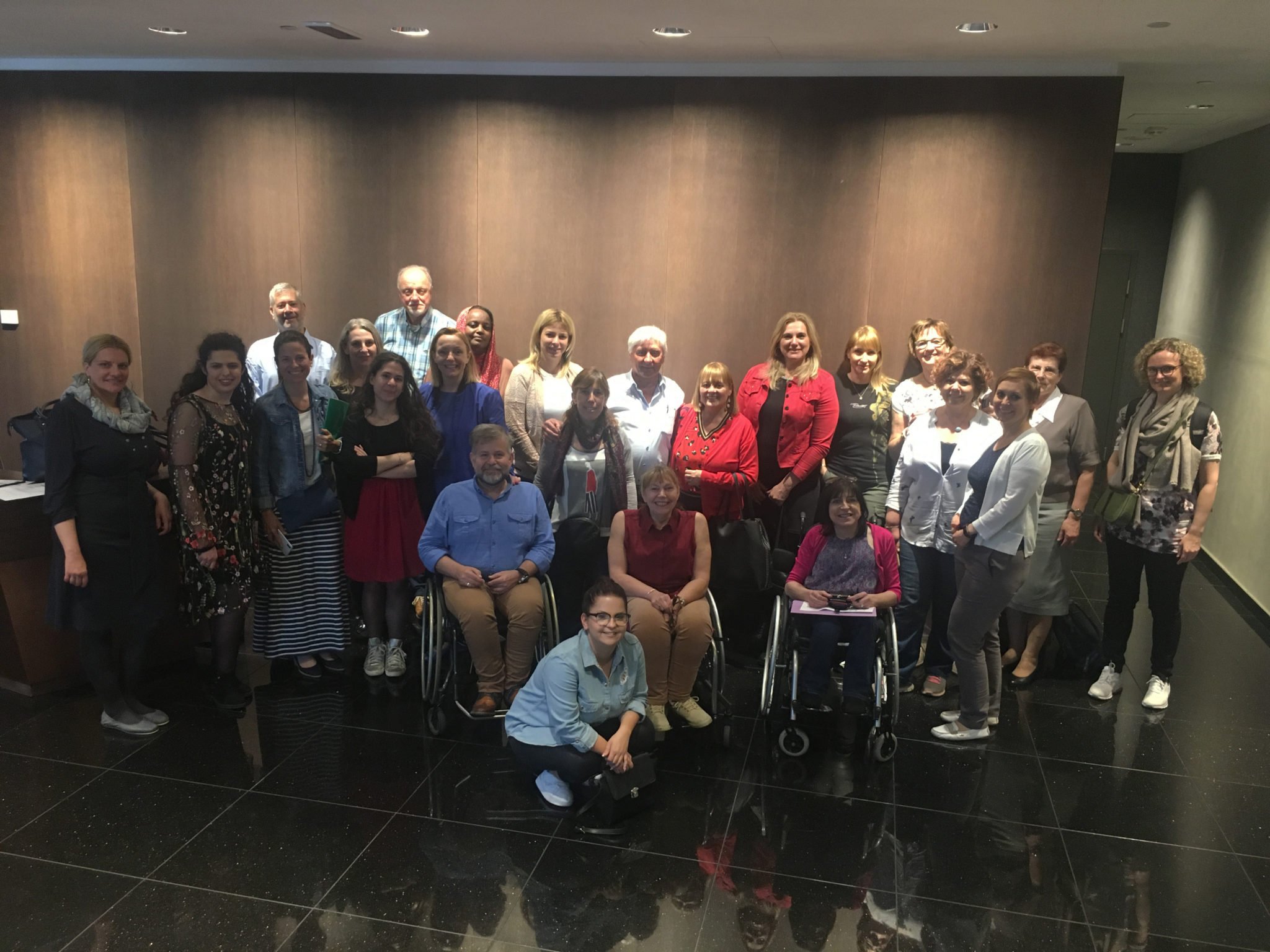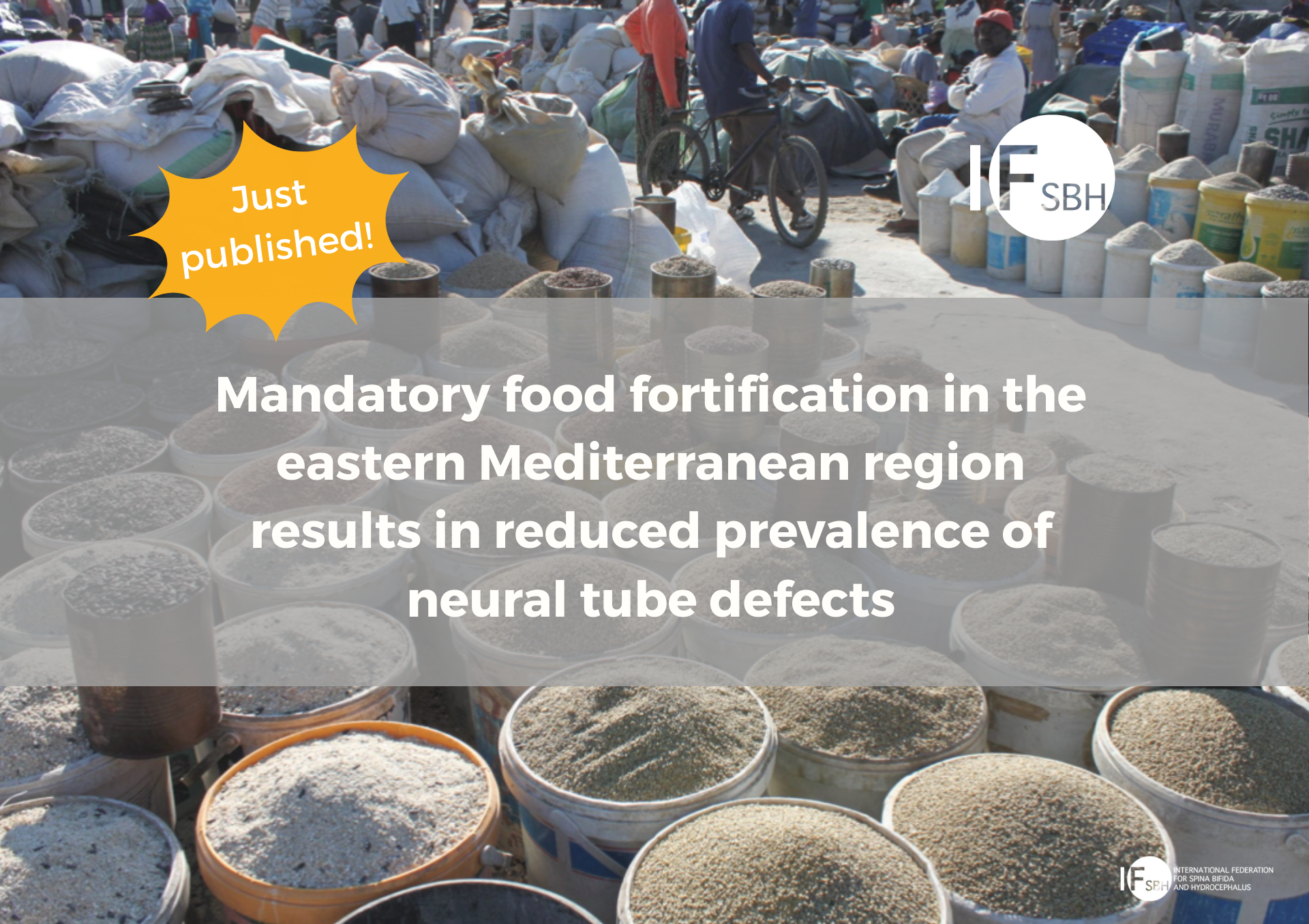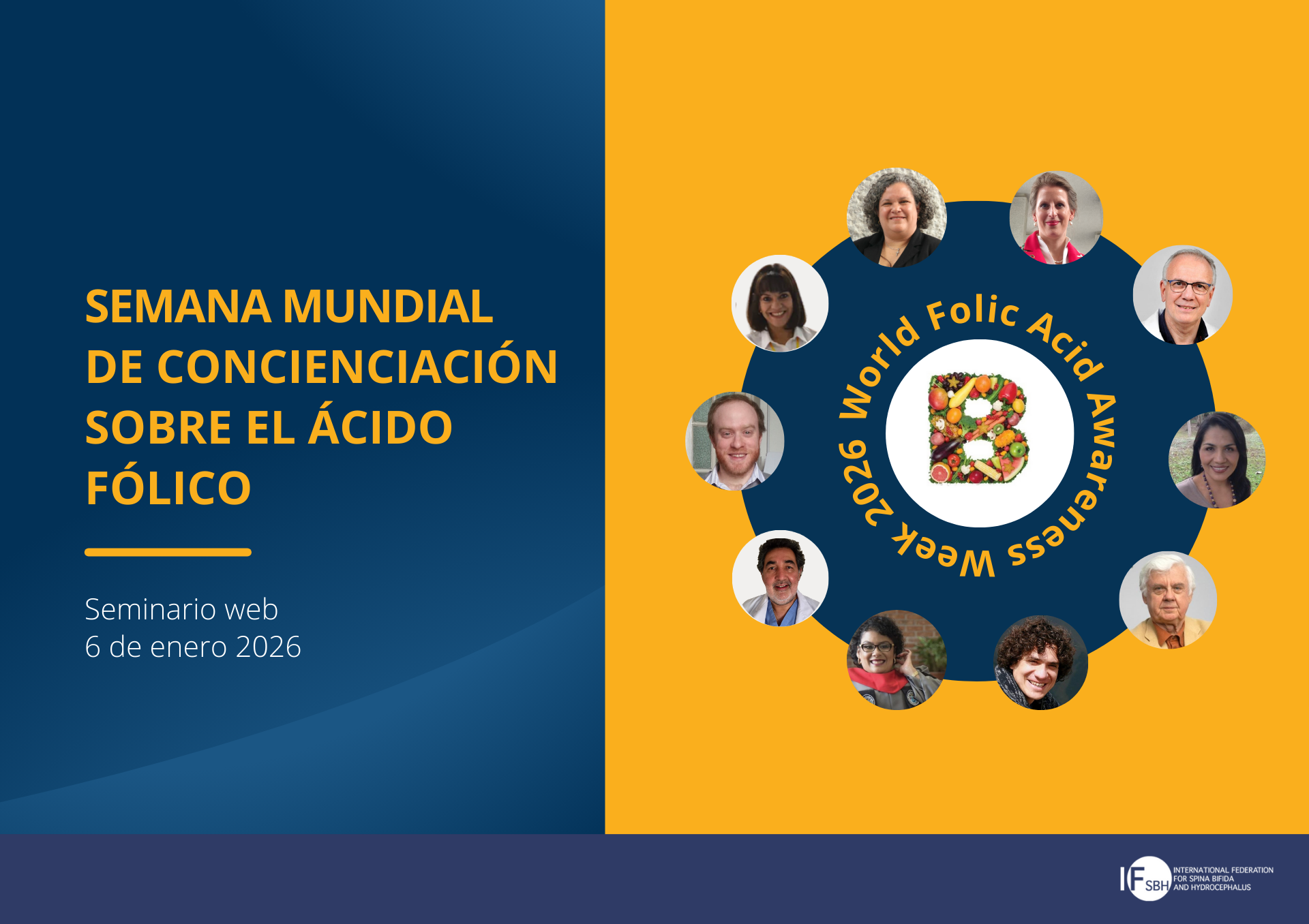23 May 2019 // On 18 and 19 May, IF held its first European workshop of 2019 in Belgrade, the fascinating capital of Serbia. The workshop dealt with different topics, with a special focus on prevention, ageing, sexuality, (de)institutionalisation and the urgent topic of human rights for people living with SBH.
Coming just one week before the European elections, the workshop was also an excellent occasion to remind participants about the importance of voting, and how the results of these elections will affect the lives of people with disabilities for the upcoming years.
The first day of the workshop started with a session on prevention and fortification, with IF Senior Advisor on Food Fortification Anna Verster giving a presentation on preventive approaches to Neural Tube Defects (NTD), such as spina bifida. Supported by an extensive amount of research and data, Anna argued about the impact of folic acid fortification and supplementation on reducing the risk of NTDs.
The topic of primary prevention with folic acid was also at the center of a presentation by IF Board Member Elena Zappoli, who focused on the folic acid legislation recently approved in Buenos Aires, Argentina, which offers free folic acid prescription by healthcare providers. In Argentine several foods are mandatorily fortified with folic acid, but still the additional measures to provide folic acid supplements are deemed important.
Finally, IF Board Chair Margo Whiteford gave a presentation on the ongoing efforts to get folic acid added to the wheatflour in Scotland and indeed the UK. The UK already fortifies its flour with iron but the addition of folic acid has not yet materialised. The UK government agreed in October 2018 to have a public consultation on this, which has by now just been launched.
After this session, the participants were invited to actively participate in a work group focused on the situation of folic acid and food fortification initiatives in their countries, which afterwards provided different interesting points to discuss, such as the skepticism still existing in countries like Serbia about food fortification.
The second session of the day was focused on the human rights of children living with SBH, starting from when they’re conceived to the first years of their lives. Different speakers talked about the situation in Serbia, discussing different topics that offered room for addressing the current situation of people living with SBH in different countries. A really sensitive topic was the institutionalisation of children with SBH, which in some countries leads to a serious lack of human rights, especially after the children leave the institutions.
The second day started with a session about ageing with SBH, giving information about a survey that is being prepared, and updates from the IF working group currently in charge of this project. Next, Anđela Radovanović, who is part of the youth group coordinated by IF, presented on the survey about body awareness and sexuality for young people living with SBH. The survey reached an astounding 400 responses so far, and IF is now willing, together with the youth group, to spread the results and involve experts in the project.
Other sessions focused on the upcoming European elections and the importance of using digital tools in health and social care, two topics that also led to stimulating discussions.
We would like to thank all the speakers and participants that took part in this workshop and we look forward to continued cooperation with our members to improve the quality of life of people with SBH and their families, and to increase primary prevention measures.





